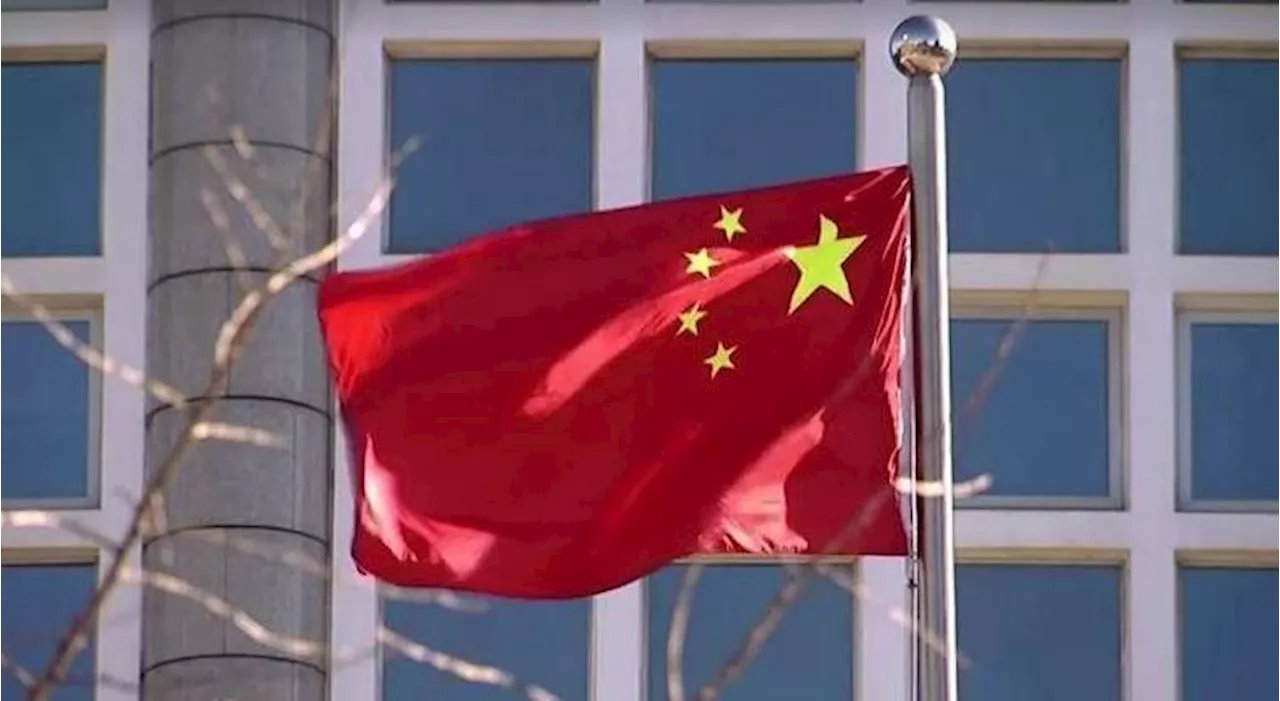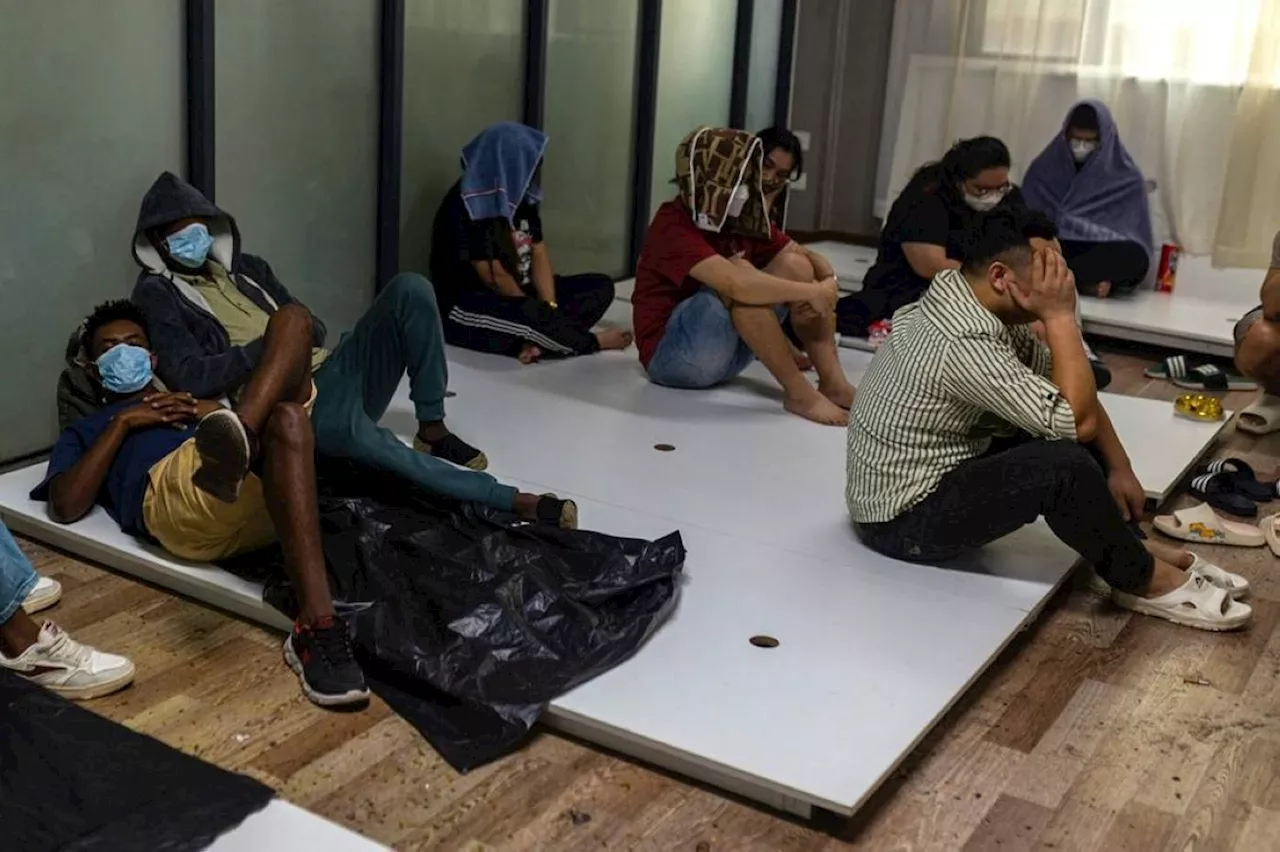Thousands of Chinese workers trapped in online scam centers in Myanmar are being repatriated following a crackdown by authorities and militias. Many workers allege they were lured with promises of high-paying jobs but were instead subjected to physical and psychological abuse while forced to commit online fraud.
Battered and bruised Chinese workers from online scam centers in Myanmar faced an anxious wait to return home as their country and Thailand finalized plans on Wednesday for their repatriation. Scam compounds have flourished in Myanmar 's lawless borderlands, staffed by foreigners, many of whom say they were trafficked and forced to work swindling people around the world.
Many of those involved are Chinese, though people from numerous countries are thought to have been caught up in an industry analysts say is worth billions of dollars a year. The Karen Border Guard Force (BGF), a militia allied with the Myanmar junta, has said it is preparing to deport 10,000 people linked to the compounds in areas it controls on the border with Thailand. In a shabby, strip-lit room in a building in Shwe Kokko — a Myanmar border town known as a hub for scam centers — dozens of workers, mostly Chinese, sprawled on plastic sheeting, looking exhausted as they awaited their deportation. An Agence France-Presse (AFP) stringer was among a group of journalists taken by the BGF on Tuesday to meet some of the workers. Some bore shocking bruises: one man's bottom was completely covered in livid purple, while several showed painful lesions on their lower legs and others had burn injuries. 'I really want to go home,' said one Chinese man, who spoke on condition of anonymity. 'I wanted to go home as soon as I arrived. I really miss my parents and family.' 'I am very nervous,' he told AFP. Naing Maung Zaw, a spokesman for the Karen BGF, said six Chinese men who were supervising the centers had been detained and would be handed over to China as suspects. 'Some workers were tortured and injured in scam centers that are not in our controlled areas,' he told reporters. Chinese minister's visit China's Public Security Assistant Minister Liu Zhongyi was due to meet Thai ministers in Bangkok on Wednesday to agree the return of a first batch of several hundred Chinese. They will be handed over around 9:30 a.m. (Thai time) on Thursday and taken by truck to the airport in the Thai town of Mae Sot, around 12 kilometers (7.5 miles) south of Shwe Kokko, a Thai military source said. Chinese planes will then take them home. The first two flights were expected to arrive in Mae Sot on Wednesday evening, with six more due on Thursday, local authorities said. Chinese security personnel were expected to accompany the returnees on the planes. The planned deportations follow Liu's Feb. 17 visit to Shwe Kokko, where he met more than 1,000 of the alleged forced workers. Last week, another local militia handed 260 alleged scam center workers from Myanmar to Thai authorities, some of whom told AFP of severe punishments meted out by their Chinese bosses. Those workers came from a dozen countries, including the Philippines, Ethiopia, Brazil and Nepal. AFP spoke to some under condition of anonymity. Many bore signs of physical abuse, including one woman who had huge bruises on her left arm and thigh and said she had been electrocuted. Many workers say they were lured or tricked by promises of high-paying jobs before they were effectively held hostage, their passports taken from them while they were forced to commit online fraud. Scam centers have proliferated across Southeast Asia in recent years, including in Cambodia and the Philippines. Authorities and militia groups have made a show of raiding the centers, which have also been linked to drug smuggling and gambling, before releasing and repatriating the foreigners inside
MYANMAR CHINA THAILAND SCAM CENTERS HUMAN TRAFFICKING FORCED LABOR ONLINE FRAUD
Philippines Latest News, Philippines Headlines
Similar News:You can also read news stories similar to this one that we have collected from other news sources.
 Chinese AI Chatbot's Code May Leak User Data to Barred Chinese TelecomSecurity researchers discovered that the popular Chinese AI chatbot DeepSeek, whose website is the most downloaded app in the United States, contains code that could send user login information to China Mobile, a state-owned telecommunications company barred from operating in the US. The code, found in the chatbot's web login page, appears to connect to China Mobile's computer infrastructure and could potentially transfer user data. This discovery raises concerns about the security of user data and the potential for Chinese government access to sensitive information.
Chinese AI Chatbot's Code May Leak User Data to Barred Chinese TelecomSecurity researchers discovered that the popular Chinese AI chatbot DeepSeek, whose website is the most downloaded app in the United States, contains code that could send user login information to China Mobile, a state-owned telecommunications company barred from operating in the US. The code, found in the chatbot's web login page, appears to connect to China Mobile's computer infrastructure and could potentially transfer user data. This discovery raises concerns about the security of user data and the potential for Chinese government access to sensitive information.
Read more »
 Wooing Chinese tourists, Thai leader says she has 'Chinese blood in her'Latest Philippine news from GMA News and 24 Oras. News, weather updates and livestreaming on Philippine politics, regions, showbiz, lifestyle, science and tech.
Wooing Chinese tourists, Thai leader says she has 'Chinese blood in her'Latest Philippine news from GMA News and 24 Oras. News, weather updates and livestreaming on Philippine politics, regions, showbiz, lifestyle, science and tech.
Read more »
 FFCCCII Honors Filipino Chinese Luminaries on Chinese New YearThe Federation of Filipino Chinese Chambers of Commerce and Industry (FFCCCII) will present special awards to Filipino Chinese individuals who have made outstanding contributions to their respective fields and serve as inspirations for the community.
FFCCCII Honors Filipino Chinese Luminaries on Chinese New YearThe Federation of Filipino Chinese Chambers of Commerce and Industry (FFCCCII) will present special awards to Filipino Chinese individuals who have made outstanding contributions to their respective fields and serve as inspirations for the community.
Read more »
 Chinese AI Chatbot's Code Linked to Barred Chinese TelecomSecurity researchers have discovered code on the website of DeepSeek, a Chinese AI company whose chatbot was the most downloaded app in the US, that could send user login information to China Mobile, a state-owned telecommunications company barred from operating in the US. The code appears to be part of the account creation and user login process for DeepSeek and was first discovered by Canadian cybersecurity company Feroot Security. DeepSeek and China Mobile did not respond to requests for comment.
Chinese AI Chatbot's Code Linked to Barred Chinese TelecomSecurity researchers have discovered code on the website of DeepSeek, a Chinese AI company whose chatbot was the most downloaded app in the US, that could send user login information to China Mobile, a state-owned telecommunications company barred from operating in the US. The code appears to be part of the account creation and user login process for DeepSeek and was first discovered by Canadian cybersecurity company Feroot Security. DeepSeek and China Mobile did not respond to requests for comment.
Read more »
 IN PHOTOS: Lunar New Year 2025 at the Sugbu Chinese Heritage MuseumThe Sugbu Chinese Heritage Museum is the first Chinese museum outside of Metro Manila
IN PHOTOS: Lunar New Year 2025 at the Sugbu Chinese Heritage MuseumThe Sugbu Chinese Heritage Museum is the first Chinese museum outside of Metro Manila
Read more »
 China Denies Espionage Allegations in Philippines, Calls for Fair TreatmentThe Chinese Embassy in the Philippines refuted accusations of espionage against a Chinese national arrested in the country. The Embassy claimed the allegations were baseless and demanded consular access for the individual. They urged the Philippine authorities to base their judgment on facts and protect the rights of Chinese citizens. The Chinese government also expressed hope that the Philippines would stop shadow-chasing and peddling the so-called 'Chinese spy' narrative.
China Denies Espionage Allegations in Philippines, Calls for Fair TreatmentThe Chinese Embassy in the Philippines refuted accusations of espionage against a Chinese national arrested in the country. The Embassy claimed the allegations were baseless and demanded consular access for the individual. They urged the Philippine authorities to base their judgment on facts and protect the rights of Chinese citizens. The Chinese government also expressed hope that the Philippines would stop shadow-chasing and peddling the so-called 'Chinese spy' narrative.
Read more »
